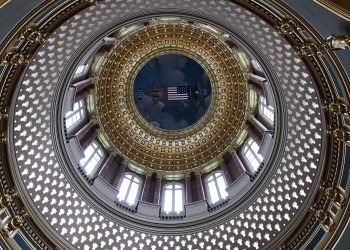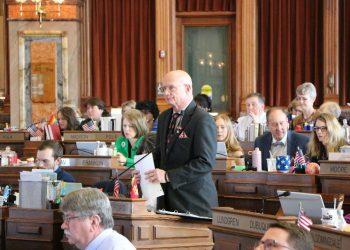(The Center Square) – Iowa businesses and residents as well as pass-through businesses may see changes in tax filing requirements and penalties if a bill, SSB 1268, passes in the Iowa Senate.
The bill, introduced Monday, helps advance the Iowa Department of Revenue’s modernization program plan. Much of the bill pertains to cleaning up existing code, according to the department.
The modernization program involves creating an integrated tax processing system that provides a more efficient, user-friendly system that enables taxpayers to be more self-sufficient and enhances data security, collaboration, and data management, according to the department’s webpage describing the program.
Rollout portions 2 (November 2021-November 2022) and 3 (November 2022-November 2023) of the department’s modernization plan relate to corporate filers and individual filers, respectively.
Under the bill, Iowa taxpayers who fail to file tax returns on time would need to pay – in addition to what remains unpaid by the due date – a penalty of 5% of the remaining unpaid tax “in addition to any other penalty provided by law.” Currently, the penalty is 10% of the tax “shown due or required to be shown due.”
Taxpayers who are required to file monthly or quarterly may have “one late return or one late payment” within 3 years. Taxpayers receiving this waiver make timely filings and payments for three years before becoming eligible again for the same waiver.
Iowans would lose the right to receive a waiver from penalty for late filing of inheritance tax that had solely been due to a disclaimer requiring the personal representative to file the return. Currently, the penalty is waived if the return is filed and any tax due is paid “within the later of nine months from the date of death” or 60 days from the delivery of filing of the disclaimer, under Iowa Code section 633E.12.
Iowa businesses that fail to file on time would pay the greater of $200 or 5% of their Iowa tax liability, up to $25,000, in addition to any other applicable legal penalty.
Businesses that are pass-through entities would have to file composite returns on behalf of all their partners, shareholders (if S corporation), or beneficiaries of estates or trusts who are not residents of the state or have commercial domiciles in the state. The income or franchise tax rate would be the maximum state income or franchise tax applicable and would be due on the same date as the pass-through entity’s annual return.
The changes for pass-through entities would apply beginning in January 2022.
The third and final section of the bill would amend HF309 if the bill, which is awaiting the governor’s signature, becomes law. HF309, which would restrict the government from requiring non-profit organizations to provide them with personal information without a warrant or a legal request for discovery.
With SSB 1268, the Department of Revenue would be able to identify an employee or other representative of the tax-exempt entity for forms such as tax returns or permits, disclose information in case of contested cases, or for student tuition organization tax credits.
Related bill HSB 272 was introduced in the House on March 30.
















